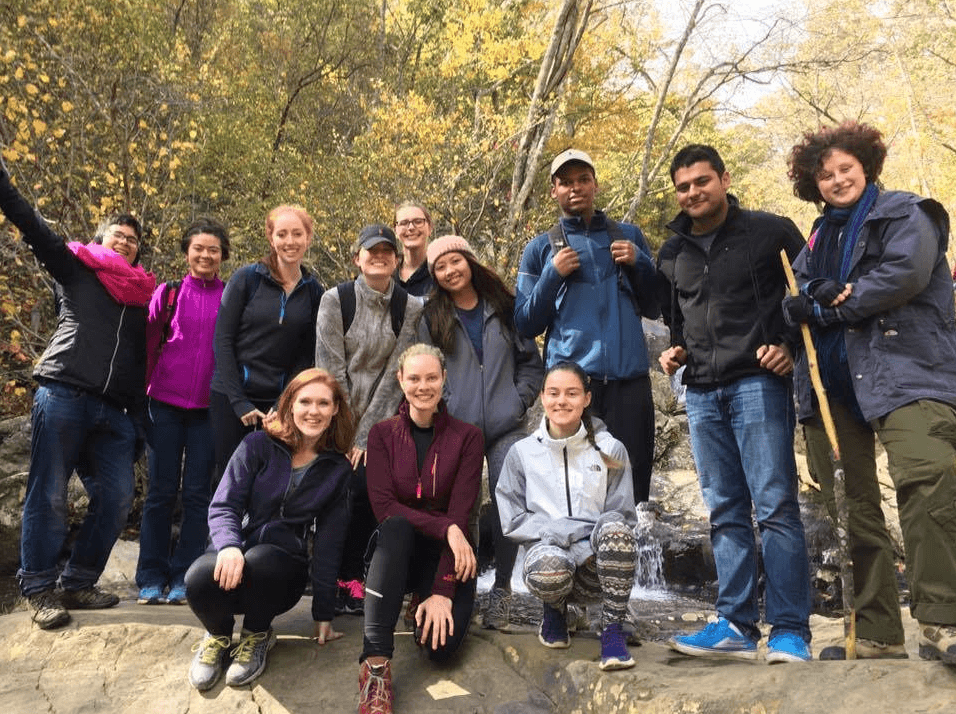UMW students gain momentum for March for Science on Washington
4 min read
Biology Student Association | Instagram UMW_BSA
By KAYTLYN BIDDLE
Due to recent events involving environmental protection, scientists and students alike have been coming together to form a “March for Science” to raise awareness for issues such as climate change and scientific integrity. Inspired by the Women’s March, which took place the day after President Trump’s inauguration, the scientists’ march on Washington is meant to be a non-partisan march to make the scientific community heard. The University of Mary Washington’s own Biological Student Association plans on attending the march and hopes to encourage others to attend while also informing them of the issues.
“I consider this a show by the American scientific community that science and facts cannot be silenced,” said a senior biology major and president of the BSA Kit Qualls.
After gaining immense momentum, the march opened itself up to everyone. They renamed the event the “March for Science” to make sure everyone felt included.
According to the website for the march, MarchforScience.org, the idea behind the march is from “the mischaracterization of science as a partisan issue, which has given policymakers permission to reject overwhelming evidence, is a critical and urgent matter. It is time for people who support scientific research and evidence-based policies to take a public stand and be counted.”
The bans on federal agencies, and the subsequent march, has more far-reaching effects than it may seem. Sarah Roche, a junior biology major and historian of the BSA, made comments about the group’s involvement in the march.
“I’m going to this march because I see this as a violation of my basic rights as a scientist,” Roche said.
A major issue that the march is meant to bring attention to is how policy-making should be based on empirical evidence, which has been treated as a partisan issue in the past, allowing it to be ignored.
“Mary Washington’s involvement is not political,” Roche said. “We are scientists and we are fighting for our research and to report our empirical data.”
Keeping the non-partisan approach in mind, the march is not being referred to as a protest, but rather a way for voices to be heard. In an effort to make the march even more unique, the website says there will be a teach-in where scientists can discuss and inform fellow marchers about their research and projects.
“I think the unifying message of this march will be that the facts are facts, they must be shared and they should be used to inform decisions that impact everyone in the United States and set examples for the world,” Qualls said.
The march is not just for scientists and students of STEM but is open to anyone who wants to join.
“We have to make people aware of what’s at stake. We cannot do that just within the scientific community,” Roche said. “We need them [non-STEM majors] there.”
After placing bans on federal agencies, the Trump Administration has been receiving criticism from the Environmental Protection Agency. The EPA, among other agencies, was instructed to refrain from interacting with the press and from posting to their social media accounts. This comes in tandem with the deletion of all social media posts that discuss climate change on verified government accounts.
Four federal agencies were directly impacted by this ban, which required the agencies to stop posting to social media accounts, to not release news information to the press, not add anything to websites or blogs and consult higher-ups before speaking to any press. There were some moments of rebellion against this ban, but they were quickly taken down.
One of the most notable reactions came from the Badlands National Park Twitter account, which continued to announce the threat of climate change despite the regulations that the federal government has imposed. Rogue Twitter accounts claiming to be the various federal agencies have also popped up, but they cannot be verified to be from the agencies themselves.
A ban or freeze such as this is not uncommon when switching from one administration to another, and some voices are saying it is nothing to be concerned about. Others are pointing to the fact that the new administration seems to be targeting scientific research and environmental protection agencies. This leads to concern for the integrity of future scientific research and the impact ignoring the signs of climate change can have.
Scientists have voiced other concerns, such as federal funding being cut, policy-making based on empirical evidence and scientific integrity in general. Fearful that these concerns will be validated by continued focus on silencing environmental or scientific communities, the scientific community has come together to lead a March for Science on Washington on April 22.
What started as a small mention on a Reddit thread has quickly gained support, with over 40,000 people volunteering to help with the march in Washington alone. A private Facebook page, which was formed shortly after the idea was presented, gained over 200,000 members. April 22, which is Earth Day, is important for the march since one of the issues being addressed is the silence toward climate change.
The BSA has opened the trip to everyone and encourages everyone who is interested to contact them. Due to one of the major issues of the march being climate change, the BSA is taking their support a step further by using carpools for transportation to the march and using recycled materials for their signs. The group is also discussing ways to make the movement last beyond the march. “This is not a fight between science and the government,” Roche said. “I’m worried about my passion.”











